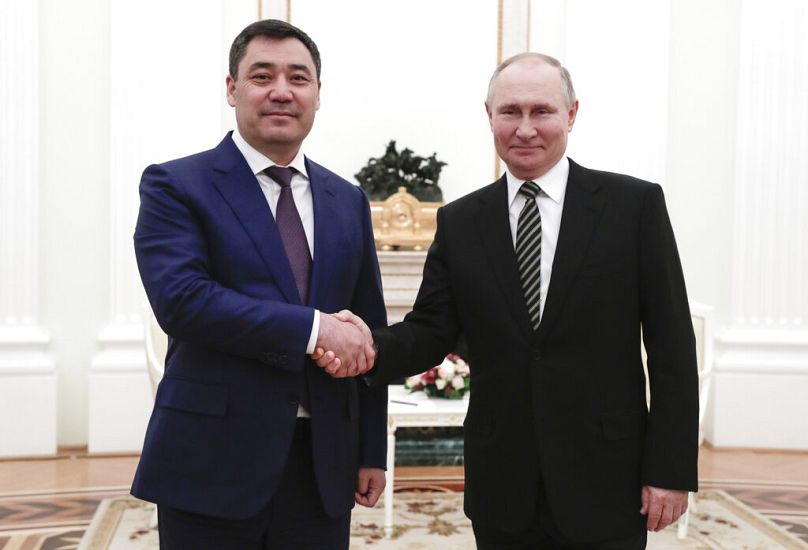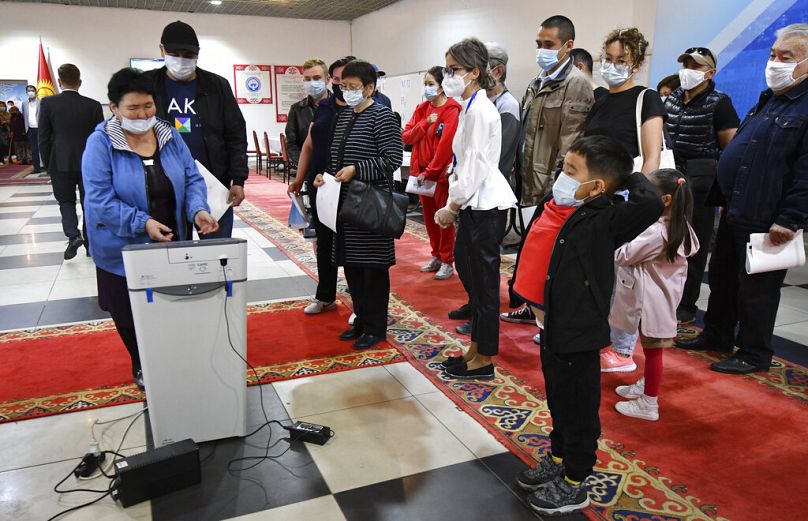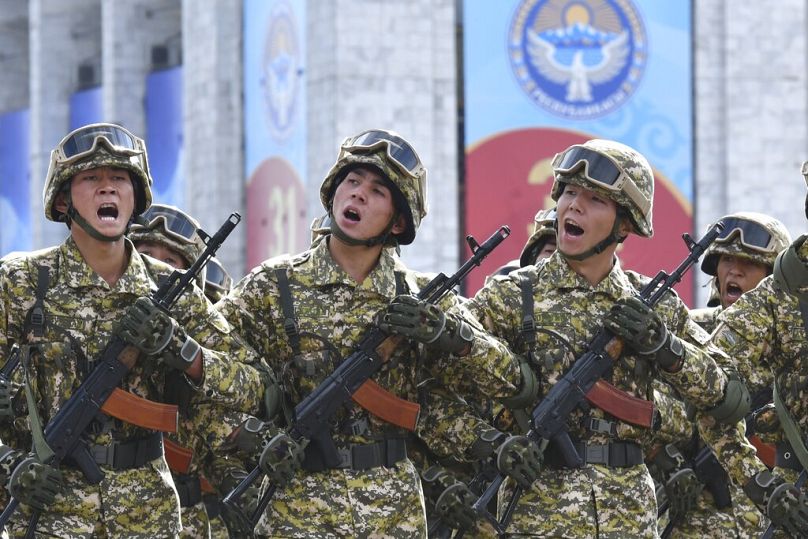The EU has spent €200 million building democracy in Kyrgyzstan. It must intervene now to stop an Afghanistan-style collapse, argues Shamil Ibragimov, director of the Soros Foundation in Kyrgyzstan.
The departure of Western forces from Afghanistan in August after nearly two decades exposed the shocking reality of what had been happening in the country.
For years in Western capitals, local officials aided by Afghan leaders and diplomats had been telling a story of strengthening institutions and democracy. But it bore little resemblance to the reality on the ground. By the time that became clear, it was already too late.
Now, in one of the last remaining democracies in Central Asia, Kyrgyzstan, that eventuality is at risk of happening again.
To date, the European Union has spent more than €200 million in Kyrgyzstan: reforming institutions, strengthening democracy, and providing other development assistance. But under President Sadyr Japarov Kyrgyz, state lines have been redrawn and political freedoms are once again under threat.
All that progress risks going up in smoke. To address this, EU officials must hold Japarov and his government to account by making aid conditional on respecting the institutions that made the country a beacon in the region.
Don't be Fooled
Kyrgyzstan is not Afghanistan. There is no ongoing war, there are no foreign occupying armies, and no rebel force is sitting across the border waiting to overthrow the government.
For years, Kyrgyzstan has been a model in the region for its political freedoms, democratic institutions and vibrant civil society. But under Japarov and his nativist policies, all of that is changing.
Free speech is being restricted through new laws, the legislation enshrining democratic institutions is being hastily rewritten, and civil society is being increasingly smothered by new demands modelled on Russia’s restrictive laws.
Russia's 2012 law on foreign agents originally singled out NGOs receiving grants from abroad. The legislation has since been amended to target not only media organisations but individual journalists, YouTubers, bloggers, and practically anyone who receives money from abroad and voices a political opinion.
This, of course, is not the picture Japarov paints when he travels to New York to address the UN General Assembly. Nor when he plans to visit Brussels to meet with EU officials, in a bid to secure greater financial support and assistance.
There, the message is still of democracy and development. That contradiction is possible because of Central Asia’s relative remoteness from Western centres, and minimal foreign news coverage.
The EU should not relinquish hope in its ability to push democratic change, as Kyrgyzstan, for a while at least, did prove that this is possible.
New constitution paves the way for authoritarianism
Since taking office in January, Japarov has overseen the creation of a new constitution which would effectively destroy the emerging system of checks and balances.
The new draft's provisions on the role of the executive and of the legislature erode the constitution’s current system of checks and balances.
Article 70 confers on the president powers once exclusive to parliament, such as initiating new laws and referendums, in addition to the existing power of veto.
Articles 76 to 79 make it possible for the president to indirectly recall MPs' mandates, although a separate law would be needed to clarify this.
If the president gets the support of a majority of MPs, he can also strip MPs of immunity from criminal prosecution, creating the conditions for political pressure on those critical of the ruling party or the president.
Japarov and his supporters have also rewritten the country’s criminal code. With little transparency about the process or the content, many worry it is being used to strengthen the group's control over supposedly independent law enforcement and judicial bodies.
Meanwhile, judges at the country’s Supreme Court have been forced out of their positions to make way for new, pro-Japarov judges.
Japarov has also signed into law a bill creating new, restrictive reporting requirements for civil society organisations, in what appears to be an attempt to put civil society on notice and make its everyday operations more cumbersome.
Japarov often cites Russia as a political model, and this particular law seems to be modelled on a Russian law that has been blamed for the steep decline in civil society in that country.
Meanwhile, Japarov’s government has also taken aim at the political class ahead of November’s parliamentary election.
Since January, five former prime ministers have been detained on charges related to corruption. Although corruption is a serious issue in Kyrgyzstan, the nature and speed of proceedings make the move seem more like a bid to take political rivals off the board than a serious campaign.
EU must recognise what is happening
Over the past 10 years, the EU, United Nations, the Organization for Security and Co-operation in Europe and others have made major investments in establishing institutions in Kyrgyzstan.
As a result of these efforts, the UN and the international community at large have commended Kyrgyzstan for adopting progressive legislation in the criminal, civil and administrative fields, and for its efforts to break away from the Soviet legacy.
With the ongoing legal changes, those accomplishments are rapidly being lost.
It is vitally important that the EU take Kyrgyzstan’s descent into authoritarianism seriously if it is to preserve the gains of its decade-long investment in modernization and democratization in Central Asia’s last remaining parliamentary democracy.
Raising these issues during Japarov's planned, imminent visit to Brussels, and making future aid dependent on addressing them, is the bare minimum the EU should do.
Doing so would be the difference between recognising what is really happening, and believing a convenient fallacy.
Shamil Ibraghimov is the executive director of the Soros Foundation in Kyrgyzstan, an NGO supporting the development of public institutions and open society in the Kyrgyz Republic.














